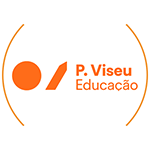Presentation
The Higher Technical Professional Course (CTeSP) in Childhood Support is part of a new type of short-term higher education, corresponding to an educational offer of a professional nature, placed at level 5 of the European Qualifications Framework for Lifelong Learning.
Through this course two important objectives will be achieved: (i) to privilege students’ rapid integration into the labour market; ii) to allow the continuation of studies, keeping a direct connection to the first cycle of higher education (bachelor’s degree).
The aim of the course is to train technicians for them to assume, autonomously or integrated into interdisciplinary teams, functions concerning children’s guidance, support and supervision, leading to the valuation of human training, the promotion of personal and social development and the acquisition and development of skills, either individually or from a group point of view.
Thus, it is fundamental:
- to make a diagnostic and ongoing assessment of children’s cognitive, socio-affective and psychomotor developmental needs, involving the various educational agents responsible for their education, and favouring the communication and sharing of information;
- to plan pedagogical, recreational, extracurricular and leisure activities, especially oriented to the child’s personal and social development;
- to promote, evaluate and supervise the impact of interactions and interpersonal relations established among members of the institution, families and children, within the scope of singular and collective life projects;
- to implement, on the basis of previous planning, formal and non-formal educational activities in schools, kindergartens, nursery schools, private social solidarity institutions and in other structures supporting both school and the family;
- to build and affect material, physical, logistical and organizational support resources to children’s daily care, responding to their individual needs for sleep, food, body hygiene and health promotion, sociability and interaction with the environment;
- to plan, implement and evaluate plans for the improvement of the institutional educational action they are formally and professionally connected to, respecting the functional hierarchy.
Bachelor's degrees in the School of Education of Viseu to pursue studies:
- Basic Education;
- Social Education.
Welfare benefits
The students enrolled in the CTeSP are covered by direct and indirect welfare benefits (scholarships, accommodation, meals), in the same terms as the other higher education students.
Coordinator: Professor Carla Lacerda








